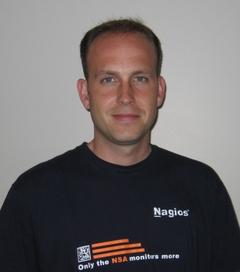The open source start-up dream still lives at Nagios


The dream has been transforming coders into entrepreneurs for several years, and Galstad does not come to it alone.
Ranga Rangachari is CEO of Groundwork, an open source network monitoring company which now has 60 employees. On this call he's acting as Galstad's advisor and ally, what businesspeople sometimes call a "rabbi."
Theirs is a strategic partnership, focused on "joint market development and shared delivery of services," according to the press release.
Galstad is also part of Groundworks' "open source council," which includes leaders of such projects as Cacti, Sendpage, Ganglia, and Smokeping.
"Nagio has 50,000 customers." says Rangachari. "We’re not starting from level zero. By the same token Groundwork has developed the ability to monetize open source IT management. Together the impact for the user community should be very positive."
Sounds great, but right now Nagios Enterprise consists of Galstad and two other people.
"It’s been very hectic, responding to inquiries from clients needing support and others wanting to investigate partnerships," says Galstad. "My time is used addressing that, but things I believe will move smoothly."
A Nagios community advisory board has already been formed, and Galstad has also begun to "transition" his role from developer to manager.
"Everything I’ve done has been self-taught. I don’t have a business degree," he adds. Hopefully professor Rangachari will be available, even though Galstad is in St. Paul, Minn. and Groundworks is based in San Francisco.
It's a good dream, and I wish Nagios luck. The question for you this morning is, can this dream still come true?
During the dot-boom of the 1990s those who got in early, say in 1997, had a much better shot at eventual success than those who came in in 1999. Is the open source boom like that? Or is this boom more grounded?